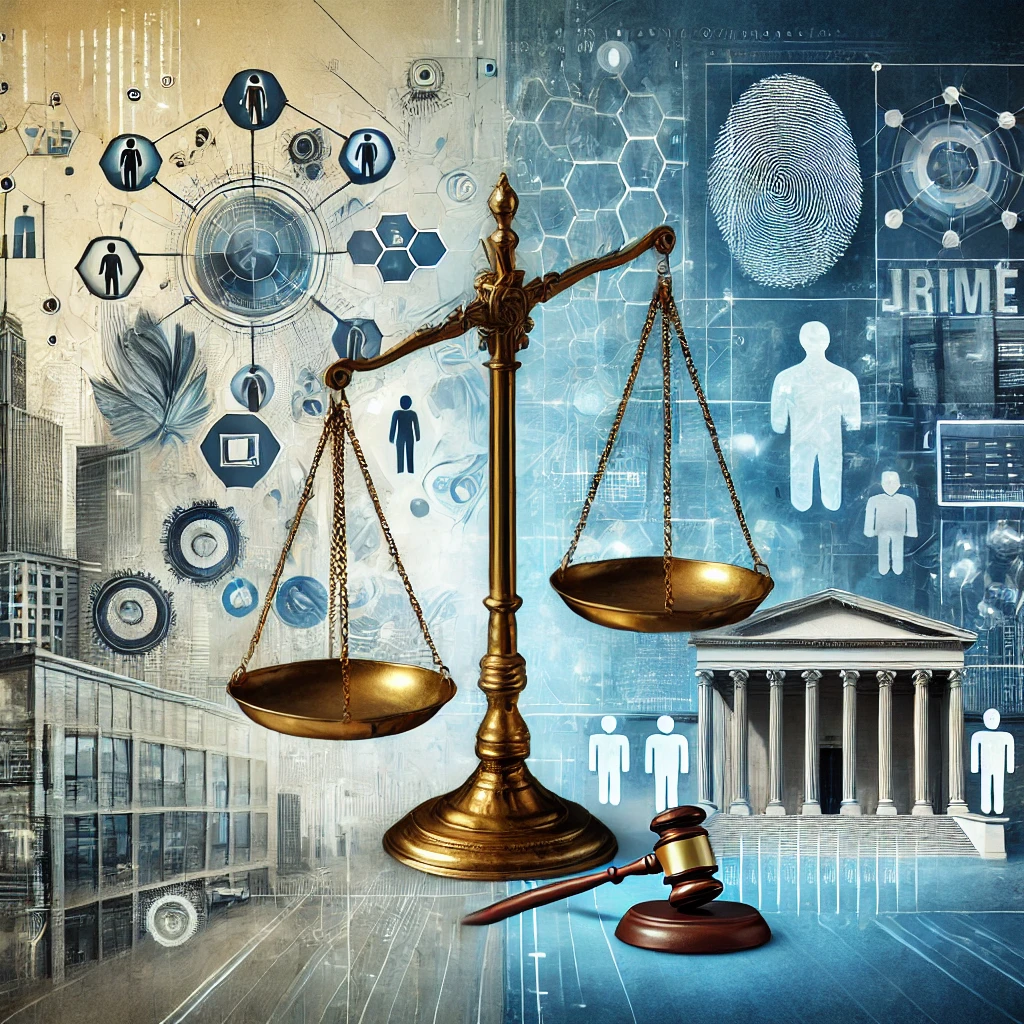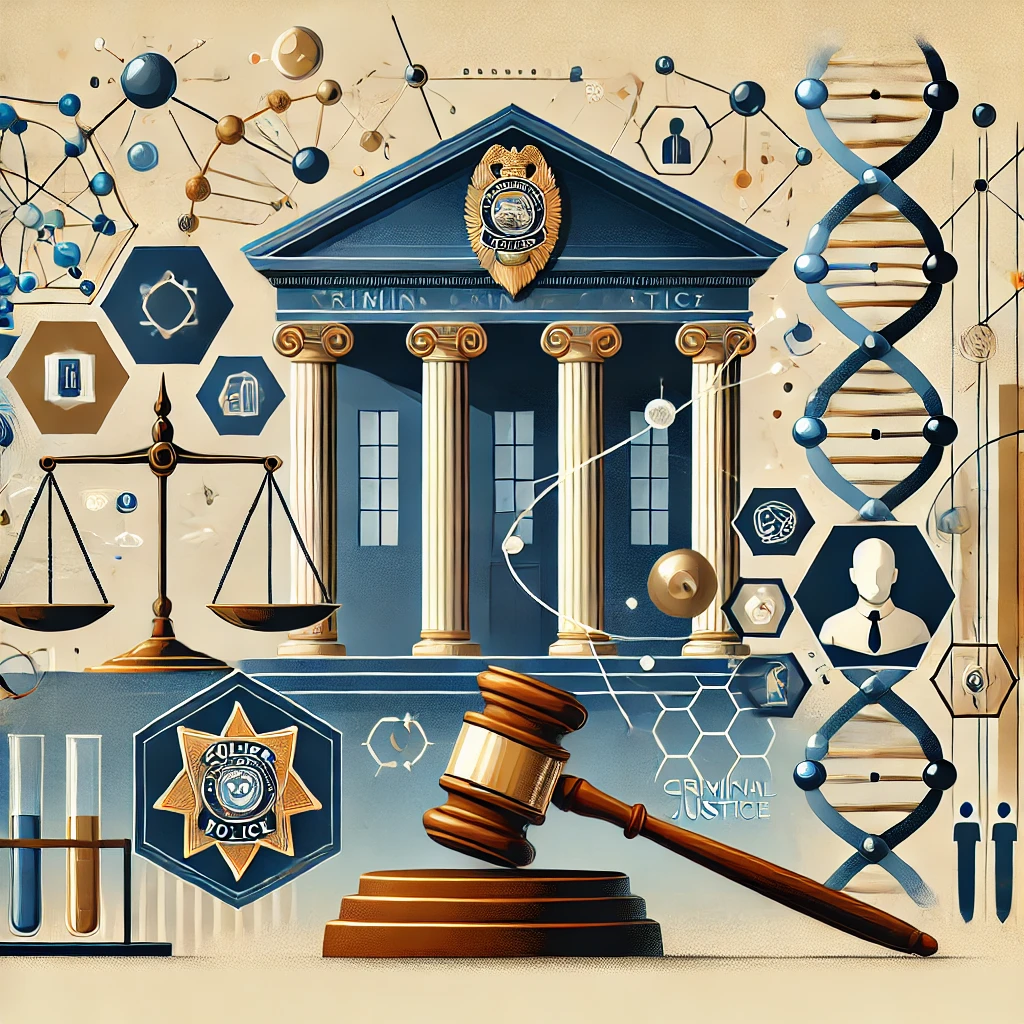Introduction
Criminology and criminal justice are interconnected fields that play a pivotal role in understanding, preventing, and addressing crime. While criminology focuses on the study of crime, its causes, and its societal impact, criminal justice encompasses the systems and institutions responsible for maintaining law and order. This article explores the relationship between these two disciplines, highlighting their significance, key theories, and practical applications.
The Relationship Between Criminology and Criminal Justice
Criminology and criminal justice are complementary yet distinct fields. Criminology, rooted in sociology and psychology, seeks to understand the reasons behind criminal behavior, analyze patterns, and propose theoretical frameworks. On the other hand, criminal justice is action-oriented, involving the enforcement of laws, administration of justice, and rehabilitation of offenders. Together, these fields provide a comprehensive approach to addressing crime.
Bridging Theory and Practice
Criminology provides the theoretical foundation for criminal justice practices. Insights from criminological research inform policies, investigative techniques, and preventive measures. For example, understanding the psychological motivations behind criminal behavior helps law enforcement agencies devise effective interrogation strategies.
Mutual Benefits
While criminology benefits from real-world data collected through criminal justice processes, criminal justice relies on criminological insights to develop evidence-based practices. This synergy enhances the overall effectiveness of crime prevention and justice administration.
Key Theories in Criminology
1. Classical Theory
The classical theory, developed by Cesare Beccaria and Jeremy Bentham, emphasizes rational choice and deterrence. It posits that individuals commit crimes based on a cost-benefit analysis, suggesting that strict punishments can deter criminal behavior.
2. Biological Theories
Biological theories explore the role of genetics, neurobiology, and physiological factors in influencing criminal behavior. Early proponents like Cesare Lombroso argued that physical traits could predict criminal tendencies, while modern research focuses on genetic predispositions and brain abnormalities.
3. Sociological Theories
Sociological theories examine the influence of societal structures, economic conditions, and cultural norms on crime. For instance:
- Strain Theory: Proposed by Robert Merton, it highlights the pressure individuals face when societal goals are unattainable through legitimate means.
- Social Learning Theory: Developed by Albert Bandura, it emphasizes the role of environment and peer influence in shaping behavior.
4. Psychological Theories
Psychological theories delve into individual mental processes and personality traits that contribute to criminal behavior. Sigmund Freud’s psychoanalytic theory and Hans Eysenck’s personality theory are prominent examples.
The Role of Criminal Justice
Law Enforcement
Law enforcement agencies, such as the police, are the first responders to crime. Their responsibilities include maintaining public safety, investigating crimes, and apprehending offenders. Modern policing strategies, like community policing, emphasize building trust and collaboration between law enforcement and communities.
Judicial System
The judicial system ensures fairness and justice through due process. Courts evaluate evidence, determine guilt or innocence, and impose sentences. Specialized courts, such as drug courts and family courts, address specific types of crimes and offenders.
Correctional System
The correctional system focuses on the rehabilitation and reintegration of offenders. This includes prisons, probation programs, and community service initiatives. Evidence-based practices, such as cognitive-behavioral therapy, aim to reduce recidivism rates.

Modern Challenges in Criminology and Criminal Justice
Cybercrime
The rise of digital technology has given birth to new forms of crime, such as identity theft, hacking, and online fraud. Criminologists study the evolving nature of cybercrime, while criminal justice systems adapt by enhancing cybersecurity measures and training specialized units.
Social Inequality
Socioeconomic disparities contribute to crime rates and influence the administration of justice. Research in criminology highlights the correlation between poverty, lack of education, and criminal behavior, urging criminal justice reforms to address systemic biases.
Globalization
Globalization has facilitated transnational crimes, including human trafficking, drug smuggling, and terrorism. International cooperation among law enforcement agencies and harmonization of legal frameworks are essential to combat these challenges.
Criminology and Criminal Justice in the 21st Century
Technological Advancements
Advances in technology, such as artificial intelligence (AI) and data analytics, have revolutionized both fields. Predictive policing uses data to anticipate crime hotspots, while criminological research leverages big data to analyze trends and test theories.
Restorative Justice
Restorative justice emphasizes repairing harm caused by crime through dialogue and reconciliation between victims, offenders, and communities. This approach, supported by criminological insights, has gained traction as an alternative to traditional punitive measures.
Policy Reforms
Policymakers increasingly rely on criminological research to inform criminal justice reforms. For example, studies on mass incarceration have led to initiatives promoting alternative sentencing and prison reform.
Conclusion
Criminology and criminal justice are integral to creating a safer and more equitable society. By combining theoretical insights with practical applications, these fields address the complexities of crime and justice in a rapidly changing world. As challenges evolve, the continued collaboration between criminologists and criminal justice professionals remains essential to advancing the pursuit of justice.

